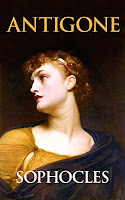
Friday, December 31, 2021
Reading Year in Review - 2021

Friday, December 17, 2021
Christmas Poem by Christopher Smart

Friday, December 10, 2021
Thoughts on The Song of Solomon

Friday, November 26, 2021
Lord Peter Wimsey Novels 1-5

Friday, November 12, 2021
The Value of Nonsense Poetry
Many people have a hard time finding the point of poetry, much less poetry that boasts of its nonsensical content, but poetry is the literature of compacted significance. Where the novelist uses a whole plot to unfold a few different ideas, the poet can bring whole traditions of thought into a few lines because of his freedom to assume that every poetic choice has great significance, only limited by the history of language and the reader’s imagination. Therefore, a poet takes great pains to find the perfect word and the perfect place for that word in the poem.
From an article by Amanda Gehrke at The Federalist. Read full post here.

Thursday, October 28, 2021
What I Read and Watched in October

Friday, October 22, 2021
All Creatures Great and Small by James Herriot

Thursday, October 14, 2021
C. S. Lewis Quote on Romantic Love

Thursday, October 7, 2021
Live Not by Lies by Rod Dreher

Thursday, September 30, 2021
What I Read and Watched in September

Friday, September 24, 2021
Pied Piper by Nevil Shute

Friday, September 17, 2021
How to Get Started Reading Dante

Friday, September 3, 2021
What I Read and Watched in August

Friday, August 20, 2021
A Place to Hang the Moon by Kate Albus

Friday, August 6, 2021
"Reading as Fortress Building" - Quotes from Philip Yancey
We’re engaged in a war, and technology wields the heavy weapons. Willpower alone is not enough, he says. We need to construct what he calls “a fortress of habits."
I’ve concluded that a commitment to reading is an ongoing battle, somewhat like the battle against the seduction of Internet pornography. We have to build a fortress with walls strong enough to withstand the temptations of that powerful dopamine rush while also providing shelter for an environment that allows deep reading to flourish. Christians especially need that sheltering space, for quiet meditation is one of the most important spiritual disciplines.

Friday, July 30, 2021
What I Read in July

Friday, July 23, 2021
Antigone by Sophocles

Friday, July 9, 2021
Death at the President's Lodging by Michael Innes
[But] He had an uneasy feeling that his own favorite
technique, which was that of sitting back and watching and listening, was
somehow inadequate – dangerous, indeed – in this case; something more
aggressive was required. In discussion, all these people would be endlessly
plausible – and they would hardly ever make a mistake.
I can't share any more of the plot without spoilers, so I'll just reiterate that Death at the President’s Lodging is one of the most
stunning pieces of detective fiction I’ve ever read. It made me an instant
admirer of Michael Innes (pen name for Scottish novelist and literary critic,
John Innes Mackintosh Stewart).
Thank you, P.D. James for introducing me to this author through
your book on detective fiction. Thanks to Kindle Unlimited, I was able to read
the first book for “free”. Now I look forward to reading the rest of the
series.

Friday, July 2, 2021
What I Read and Watched in June

Friday, June 11, 2021
Quote from Ray Bradbury on Leaving a Legacy
Everyone must leave something behind when he dies, my grandfather said. A child or a book or a painting or a house or a wall built or a pair of shoes made. Or a garden planted. Something your hand touched some way so your soul has somewhere to go when you die, and when people look at that tree or that flower you planted, you're there.
It doesn't matter what you do, he said, so long as you change something from the way it was before you touched it into something that's like you after you take your hands away. The difference between the man who just cuts lawns and a real gardener is in the touching, he said. The lawn-cutter might just as well not have been there at all; the gardener will be there a lifetime.

Friday, May 28, 2021
What I Read and Watched in May

Friday, May 21, 2021
Fahrenheit 451 by Ray Bradbury

Friday, May 14, 2021
Anna Karenina by Leo Tolstoy
The biggest challenge was the sheer length of the book (and learning everybody's names), but it was not hard to understand at all. I found my mind wandering during the bits about politics and farming, but was able to appreciate those sections when I switched over to the audiobook. (free on YouTube or at Librivox)




























